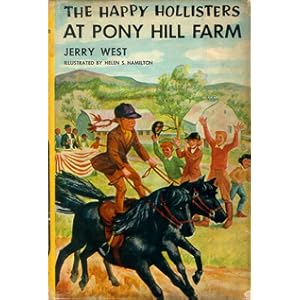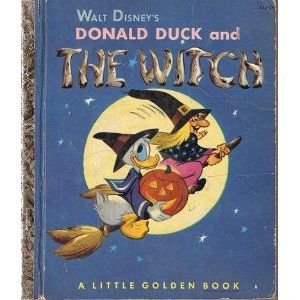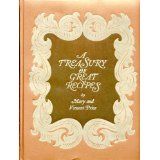


An interview with Author Elizabeth Ashworth by Kelly P. (KellyP)
I recently read and enjoyed The de Lacy Inheritance by Elizabeth Ashworth. It is a short book, and seems to embody everything I like about historical fiction – historical accuracy, real-life characters, an interesting plot, good conflict between the characters and just the right amount of romance. After visiting her website and reading some of her blog posts, I knew I wanted to know more about this author. She graciously agreed to an interview and I am delighted to share our conversation with the PBS community.
Kelly: Thank you, Ms. Ashworth, for this interview. Can you tell us a little about yourself?
Elizabeth: I live in Lancashire, in England which is a county filled with history and beautiful countryside. I used to be a primary school teacher, but about ten years ago I became a full time writer, although I still teach creative writing to students of the Open College of the Arts. I have a cat who is 17 years old and demands a lot of my attention and a grown-up son who demands almost as much, but who is invaluable as a research assistant, chauffeur and proof reader.
Kelly: You are a writing consultant, non-fiction author, novelist and short story author: it’s obvious that if words can be strung together, you can do it! Do you have a favorite type of writing? What are the individual challenges of writing non-fiction? What about fiction?
Elizabeth: I’ve always written, from being a small child, and even before that I think I was making up stories in my head. I don’t favour one type of writing over another, but they are different. Non-fiction is about setting out facts in an interesting and accessible way, whilst fiction is about creating characters and other worlds that readers can believe in. I suppose it’s a matter of making facts into a good story and making a story seem believable. My historical fiction novels take the best of those things and mix them together. They are based in fact and then the gaps are filled with fiction.
Kelly: Your first full-length novel, The de Lacy Inheritance, grew out of the research for one of your non-fiction books. Do you enjoy the research necessary for your fiction & non-fiction books? How important has the internet become for the type research you do for your books?
Elizabeth: Yes, I do enjoy research – and history has so many stories to tell that it’s difficult not to be constantly side-tracked by a new idea or to spend so much time researching that nothing ever gets written. The internet has certainly made life much easier for researchers. It means I can access lots of things that I used to have to go to the library for. But there is a lot of poor research and misinformation on the internet and you have to be very careful that what you use is from a credible source – so I still buy lots of books and do research in libraries as well.
Kelly: I very much enjoyed The de Lacy Inheritance and appreciate that you lifted many of the characters and the basic storyline from actual history. And the same is true for your new book, The Honourable Estate. How important is it for your historical novels to be grounded in fact, using real-life characters?
Elizabeth: I’m fascinated by the stories of real people and I find that those are the ones I want to tell.
Kelly: Speaking of fact versus fiction: authors will frequently change dates or locations to enhance the overall flow of a story. And some authors shamelessly play fast and loose with the facts. As a historical fiction novelist, what is your responsibility to historical fact as currently known? Where do you draw the line on the acceptability of rewriting/revising history all for the sake of a good novel?
Elizabeth: I think there is a fine balance between providing readers with facts and creating a good story. I’m not in favour of changing well-known facts, although what are regarded as facts can sometimes be challenged. For example, many people think that Richard III was a hunchback because that is how Shakespeare portrayed him, but there is no evidence that it is true. In The de Lacy Inheritance I made Johanna Roger’s sister whereas the primary documents of the time suggest that it was his daughter who married Geoffrey de Wallei. But I did make this clear in my Author’s Notes. As a novelist, my first intention is to tell a good story, but I’m also aware that I have a duty not to mislead or misinform my readers, or to do a disservice to the people whose stories I am telling. So, on balance, I think it’s important to keep as close to the truth as possible.
Kelly: In The de Lacy Inheritance, the characters were all well-developed and believable. However, Richard was about as near perfect as one could hope for in a leading character and brother Roger was singularly lacking in humanity. Is this how they “grew”; or did you intentionally want that comparison of “good” and “not so much”?
Elizabeth: Richard is lovely, isn’t he? He ‘grew’ from my idea of a man seeking redemption for his sins. The character of Roger on the other hand was based on contemporary evidence. One source says that he was nicknamed ‘Helle’ because people feared him. I did want to draw a contrast between the two men, but I sometimes wonder if I was too hard on Roger.
Kelly: To open The de Lacy Inheritance with the Mass of Separation is very powerful and gives the reader a sharp and undeniable idea of what it meant to be shunned as a leper. How an author begins a novel fascinates me. At what point did you know this was how you wanted to start this story?
Elizabeth: I think it was when I read the words of the Mass. I imagined what it would have been like to hear those words being read out to you and I realised what a good opening it would make to the novel.
Kelly: And now, The Honourable Estate is out! Congratulations on that! I am looking forward to reading it as soon as I can get a copy of it. Were there many differences in your approach to writing this one versus The de Lacy Inheritance? What was the most challenging aspect about writing each of these books?
Elizabeth: When I began to write An Honourable Estate I felt more confident that I could complete a full length novel. I learned a lot about pacing a longer story from writing The de Lacy Inheritance and this one was much easier to write. I think the most challenging aspect of The de Lacy Inheritance was researching the family history of the de Lacy family. But for An Honourable Estate I found a booklet in the Lancashire Authors’ Association library where a historian called T.C. Porteus had researched the legend of Mab’s Cross and compared it with the historical events of the time. So most of the groundwork was done for me and I relied heavily on his excellent work to drive my plotline. I think the most challenging aspect of An Honourable Estate was deciding where to begin the story. I wrote it and then added more at the beginning. Then decided that it was unnecessary and took it out again. In the end I decided to use it as a short standalone prequel that I’ve published as an ebook called The Lady of Haigh.
Kelly: If you could give us just one teaser about An Honourable Estate, what would it be? What is the one thing that will whet our appetite?
Elizabeth: What would you do if your husband was outlawed and presumed dead, your lands were seized by the king and the only way to protect yourself was to marry a man you hated?
Kelly: How are your days constructed? Do you follow a fairly set routine? Do you have an outline before starting a novel or just the basic idea of who and what you want to write about?
Elizabeth: I don’t have a set routine except that I like to get my student marking completed before I begin my own work. I can never settle if I know there’s marking waiting. I usually begin the day by checking emails and messages and trying not to spend too long on Facebook chatting with friends. Then it’s student marking, or any project I’m working on for a client followed by my own writing. I begin by reading and revising what I wrote the day before and then getting on with adding more words. I usually begin a novel with an outline of the plot, although it often changes as the work progresses.
Kelly: When you aren’t busy with your own work, what kinds of books do you enjoy and who are some of your favorite authors?
Elizabeth: I read widely and I’m always willing to try something new. A lot of my reading is non-fiction research for the book or books I’m working on. I enjoy reading historical fiction by other authors – Elizabeth Chadwick and Bernard Cornwell are two writers I like. I read many genres and like the work of Elizabeth Gaskell and other classics as well as modern day authors such as Hilary Mantel and Margaret Atwood. It’s hard to pick favourites as my tastes are very eclectic.
Kelly: What is your favorite historical era to read about? Write about? Research?
Elizabeth: I seem to be drawn to the medieval period. I don’t know why. It seems to hold a fascination for me and there’s a romantic feel to all those castles and tournaments even if the reality was brutal and often bloody.
Kelly: What are you reading right now for pleasure?
I’ve just finished Bring Up The Bodies by Hilary Mantel, which is the sequel to Wolf Hall and follows the story of Thomas Cromwell. Her style of writing is not to everyone’s taste but I enjoy the way it plunges the reader right into the centre of the story. I also enjoy her subtle humour and her vivid descriptive writing.
Kelly: Do you have a “Keeper Shelf”? What’s on it?
Elizabeth: One book I would never throw out is a tatty second hand edition of a story called Mist Over Pendle by Robert Neill. It’s about the Lancashire Witches. I first read it in my early teens and realised that novels didn’t have to be set in exotic places and that the area where I lived was rich with stories and legends.
A more recent book about the same story is Daughters of the Witching Hill by Mary Sharratt. Mary is from the USA but now lives near me in Lancashire and the fresh perspective she gives to the story of the witches is fascinating.
I also have some books by the Brontes – Jane Eyre, Wuthering Heights, and others that I like to re-read from time to time.
Middlemarch by George Eliot will keep its place on the shelf as will North and South by Elizabeth Gaskell. I read North and South many years ago and then went back to it after the BBC TV drama was shown.
More recent books I’ve kept include The Greatest Knight by Elizabeth Chadwick which is the story of William Marshall, Oryx and Crake by Margaret Atwood, and Life of Pi by Yann Martel.
Kelly: What are some of your non-literary hobbies and interests?
Elizabeth: I like to go to visit old houses and gardens. The countryside and wildlife are important to me and I enjoy walking and bird watching.
Kelly: We hate to be greedy, but what are you working on now?
Elizabeth: I have another finished novel, By Loyalty Bound, which I hope will be published in 2013. I’m negotiating a contract for it at the moment so can’t say much, except that it is about Richard III and the woman who was the mother of his two illegitimate children. No one knows for sure who she was but I have a theory and it will be interesting to see what reaction it gets from Richard’s many fans.
Kelly: You have an impressive website and blog (www.elizabethasworth.com). You also twitter and prepare video trailers for your books ( http://youtu.be/b4mLgPJqr88)? How important is social media networking in promoting an author’s books? And, do you enjoy it? How do social media efforts compare to old-fashioned book signings and appearances/interviews? (And, can I take a minute to say I really love your website – you share lots of great information in a friendly, very readable style!)
Elizabeth: I’m pleased you like my website. It draws in lots of visitors and I enjoy sharing my research with readers. I think that what the internet and social media has provided is a far wider geographical reach than book signings and appearances, which have been mostly local events. Each has its place. I enjoy meeting readers face to face but it would be very hard to bring my work to an international readership without sites like Facebook and Twitter, where you can follow me @elizashworth.
Kelly: I want to extend my sincere appreciation to Ms. Ashworth!
 Agatha Christie became one of my all time favorites. The Orient Express was the first one I read. After that, I was hooked on mysteries forever. Her writing style took me a bit to get use to, but once I hit the forth chapter, I was rocking.
Agatha Christie became one of my all time favorites. The Orient Express was the first one I read. After that, I was hooked on mysteries forever. Her writing style took me a bit to get use to, but once I hit the forth chapter, I was rocking. these and my cousin has been very involved in the discussions.
these and my cousin has been very involved in the discussions. I may not instill a deep love of reading in him, but I feel I am instilling the appreciation of a good story.
I may not instill a deep love of reading in him, but I feel I am instilling the appreciation of a good story.
 I hope that each of you get to share a love of reading with a young person. There really is no better accomplishment!
I hope that each of you get to share a love of reading with a young person. There really is no better accomplishment!





 when I also discovered ancient history and archeology thanks to Leonard Cottrell and
when I also discovered ancient history and archeology thanks to Leonard Cottrell and 































